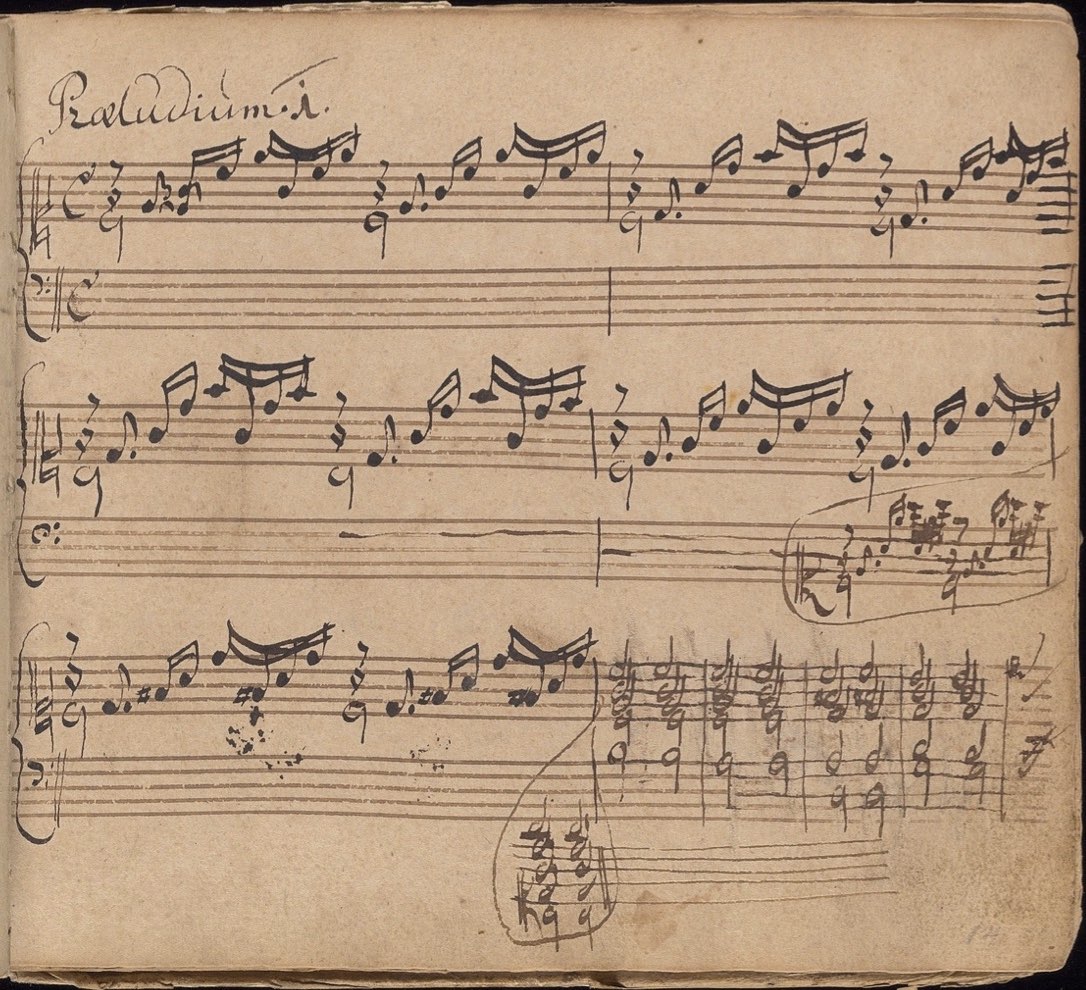Learn to play
beautifully
... even if you're a
complete beginner
A piano keyboard may look confusing at first, but the layout of piano keys is actually very simple. While it would be nearly impossible to identify individual keys if all we had were the white keys, the pattern of black keys makes it easy to identify the keyboard layout. The black keys are...
One of the most popular pieces among piano lovers, Bach’s Prelude in C major (BWV 846) is also a prelude to the Well-Tempered Clavier as a whole. It started out life as an exercise for Bach’s son Wilhelm Friedemann Bach:

This manuscript is in the hand of the young Wilhelm Friedemann,...
Question: How do we know which chords to use in Deck the Halls in key of C?
Albert’s reply: I’ve created a simple arrangement and have made the “Deck the Halls” sheet music available for free download as a small gift to key-notes readers. (Just click the link to...
Question: Hello Albert,
I read something you wrote under the heading Piano Practice and subheading Accuracy and quote, “we systematically learn our pieces phrase by phrase….”
This is something I have been pondering on for a long time and now question, how long is a phrase,...
Question: Hello Albert,
I often read about practicing on your website, and you write a lot about how to practice efficiently, and how you get the best results. But if someone (like me) tries to focus on all the things you tell us on your website, it can be kind of hard to keep everything in...
Learning a piece of music successfully requires avoiding mistakes in practice. How we practice is how we learn, and how we learn is how we perform. If we make mistakes in practice, we teach ourselves to make mistakes in performance. It’s a simple equation.
What exactly is a mistake?...
Question: What is your advice for playing polyrhythms? For example, simple polyrhythms like triplets against duplets or quadruplets and odd ones (Chopin’s favorite) like 4 notes against 35 or 13 notes.
My approach is lots of practice hands separately with the metronome but the odd ones...
With their multiplicity of interweaving, interdependent voices perpetually reacting to one another, deceptively appearing in backwards guise, upside-down, rhythmically lengthened or shortened, migrating amongst unstable keys yet all the while forming a coherent harmonic unity, fugues are far and...
Question: Is it essential to play or to require my students to play all indicated fingerings in early advanced pieces, i.e., Chopin’s Fantasie-Impromptu Op. 66, or Mozart’s Fantasia in D Minor? Although I can play and also teach pupils all of the indicated fingerings, I don’t...
Question: How do you create a natural and organic rubato? Somebody suggested that I try to practice my melody line separately. I tried it but my rubato sounds unnatural and vomiting. Have I missed anything?
– Lillian (Seattle, Washington, USA)
Albert’s reply: This is a superb...
Question: I want my piano playing to be more stylish. I know I can play piano well but I’m already tired of listening to my style of playing. How can I improve?
– Grace Daffon (San Josedel Monte, Bulacan, Philippines)
Albert’s reply: Besides studying with an expert teacher...
Question: Hi Albert,
I often see references to piano skill classification, but how does an individual know at what skill level he/she is playing at, if the person isn’t taking structured piano training? The skill levels I’ve seen being used are: early beginner, beginner, late...

